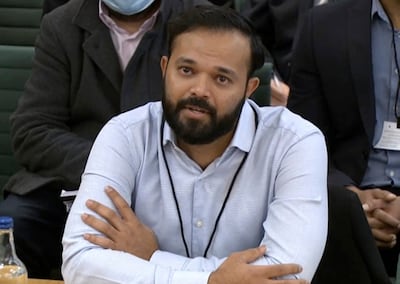Last week, Canadian psychology professor Jordan Peterson was invited onto one of the UK’s premier TV debate programmes, Question Time. As the panellists discussed the topic of institutional racism in British cricket, Prof Peterson launched into something of a tirade against the notion of structural racism.
His suggestion was that “the concept of structural racism” does not address the “issue”; rather, it “exacerbates the problem”. What problem Prof Peterson was referring to seems somewhat nebulous, but there are certainly multiple problems with his rhetoric. Not least because his very approach is implicit evidence of structural racism itself.
Prof Peterson chose an interesting opportunity to attack the notion of structural racism; the Question Time panel had been asked to comment on a specific example of that phenomenon, which related to British cricketer Azeem Rafiq, and Rafiq’s recent testimony to the British Parliament on how racism was common place within cricket.
Rafiq, as Prof Peterson admitted, “was experiencing racism, by his own account” – in other words, it was not second or third-hand research Rafiq was relying on, but his own lived experience. Prof Peterson even described the word “racism” as a “global and vague term”.
The professor could have chosen, perhaps, other examples to make his point; the Rafiq case seems rather clear-cut. Rafiq was, as Labour MP Stella Creasy pointed out on the programme, repeatedly called by abusive terms that were connected to his racial background – in other words, racist comments.
But there are two larger issues here. The first is that it isn’t simply the idea of racism that seems to have attracted the ire of Prof Peterson, who begrudgingly admitted such a thing exists. Rather, it was that structural racism, as a concept, only serves to “pit groups against groups”. The argument here is that while individuals might be racist, there is not an overarching system of laws and policies in many countries that is built upon that racism, and results in and supports a continued disadvantage of people on the basis of race.

One might be forgiven for thinking that Prof Peterson simply does not appreciate, as a psychology professor, such a social and political phenomenon as structural racism; it is beyond his expertise. Indeed, it is rather peculiar that a Canadian professor of psychology, who is not even a resident of the UK, was invited onto Question Time in the first place, let alone to discuss such a sensitive issue.
But there is more to it than that. Prof Peterson, and others similar to him on these issues, I would suggest, are entirely intelligent enough to understand the idea of systemic structural racism. It’s not a deeply difficult concept to grasp, and it is clear that they do understand the notion of “systems” when it comes to other biases, for example. For example, Bari Weiss, a former New York Times editor who has been outspoken against “woke culture”, has attempted to found a whole new educational institution in light of her claims around bias in the academy.
Prof Peterson has frequently attacked academia for being, as he claims and which I would dispute, riddled by left-wing bias and political correctness. On other occasions, he has claimed that one should have a “multivariate analysis” when it comes to analysing why women are paid less than men. As he may know, this actually implies that there is a system involved, although he doesn’t seem to have much in the way of solutions.
When Prof Peterson and his fellow travellers attack the notion of structural racism, it is not due to some kind of abstract or esoteric objection to the idea of an overarching system that is underpinned by, supports and results in racism. Rather, his obfuscation of the system is designed, clearly, to reduce the importance of going beyond a few “rotten apples”, as it were.
Individual racists are bad for their racism, he might admit, but they do not thrive, he argues, because of a wider system. They are just bad people, and the surrounding environment of laws, polices and institutional arrangements, have nothing to do it. Perhaps this has something to do with why Prof Peterson has previously described Donald Trump as a “liberal” whom he would have voted for, or his well-publicised meeting with Viktor Orban, the deeply controversial President of Hungary.
For an academic, this is quite striking. In every field of study, there are very few things that are a matter of consensus for academics. But when it comes to the idea of structural racism, for sociologists, particularly those who study race and ethnic relations, there is a founding principle that is very clear: societal norms between different ethnic groups are not a matter of a few rotten apples here and there. They are established and upheld by clear flaws in society’s institutions, including in law and policy. In other words, systems that fail to prevent racism at best, and encourage it at worst.
But that brings us to the final question; why is it that such nonsense around racism can be uttered so easily, with very little consequence to one’s credibility, it seems, by a man like Prof Peterson? One is forced to ask: does the fact that he is well-to-do, white professor, have anything to do with it? And if so: is not his own denial of structural racism simply, frankly, more evidence of structural racism itself?


